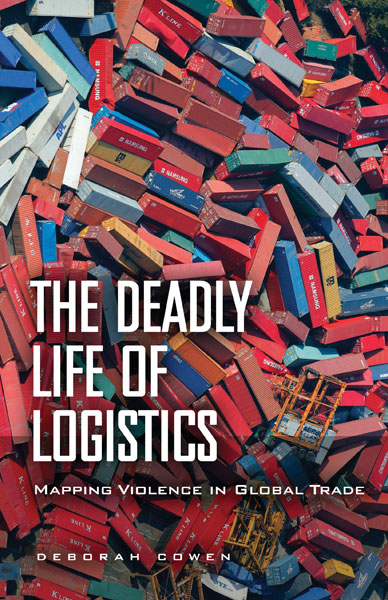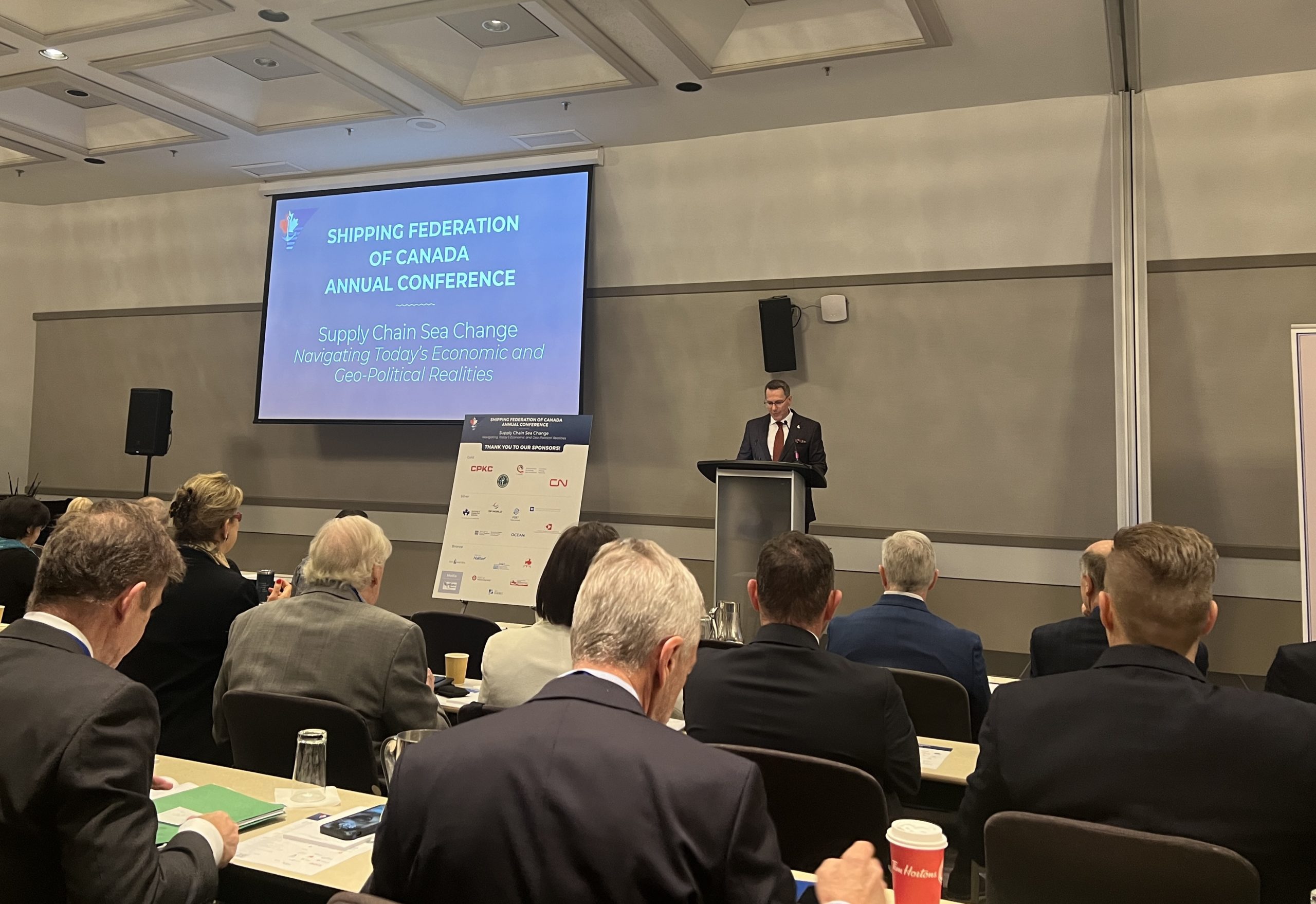Deborah Cowen, The Deadly Life of Logistics: Mapping Violence in Global Trade. Minneapolis: University of Minnesota Press, 2014. 328 pp.
This book is both revealing and concealing. There is something to learn in this book, but its academic jargon does not make for an easy read and lessens the effectiveness of the book for most readers. The author is Associate Professor in the department of Geography & Planning at the University of Toronto. The overall concern of the book is to explore the links between war and trade. Cowen argues that these are inextricably linked in the global supply chain, both war and trade are organized by it and take its form.
The book reveals that global supply chains are (perhaps not surprisingly) very complex. As Cowen writes, “With the rise of global supply chains, even the simplest purchase relies on the calibration of an astonishing cast of characters, multiple circulations of capital, and complex movements across great distances.”(1) The logistics chain is not free of problems, but when one looks more closely at it, it is possible to see the many disruptions and contested human relations that shape the logistics industry (2). These challenges to the logistics system mean that global supply chains are influenced by war and the potential for war, meaning that flows of goods to certain people or parts of the world are affected. The humans in various parts of the world who depend on trade and the flow of goods are penalized as the supply chain might be modified because of conflict. Cowen helpfully points out that the supply chain can’t simply view ends, but needs to consider the ethical implications of its means as well, especially the unintended consequences of promoting the security of supply chains. She writes that “The move to include protection of global trade as a pillar of national security, as so many states now do, stems from the central role that trade plays in reproducing a corporate-managed and transnationally networked way of life. Yet a slippage occurs where protection of the economy as a route to protection of life is replaced with the protection of the economy as protection of life itself.” (230)
Cowen’s exploration of the human consequences of the links between global security, war, and trade, also conceals. She laments the messiness of global trade and the consequences of its links with conflict but does little, in my opinion, to propose solutions that could be useful in fixing specific issues. She does argue in the conclusion of the book that we need a more socially just supply chain (230), but what does that actually mean? Her interpretive theories are somewhat helpful in breaking down the complexity of problems, especially when those problems are systemic, but perhaps they are not as useful in proposing practical solutions going forward. It would be interesting to have commentary in this book on more specific proposals that could inform the current debates of the governing bodies in shipping, including government, industry, and labor.
Review by Jason Zuidema (originally published in the print edition of The MARE Report 2018).





